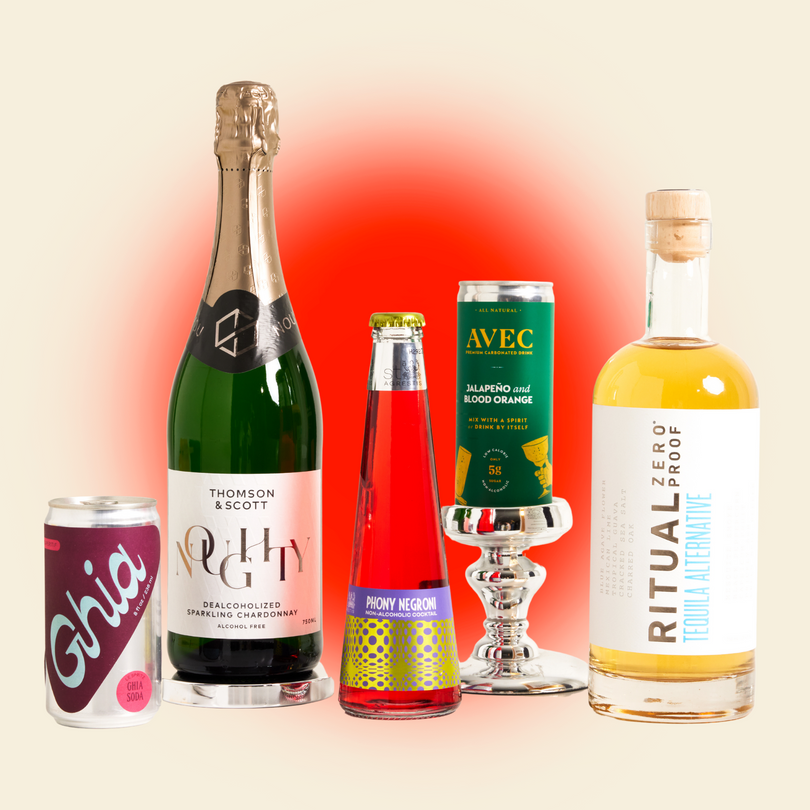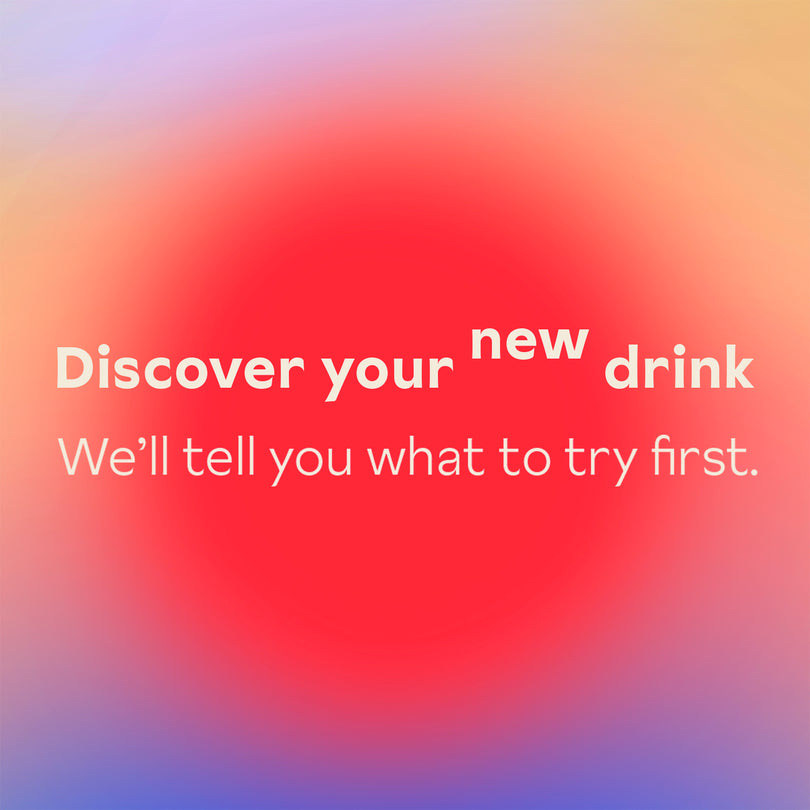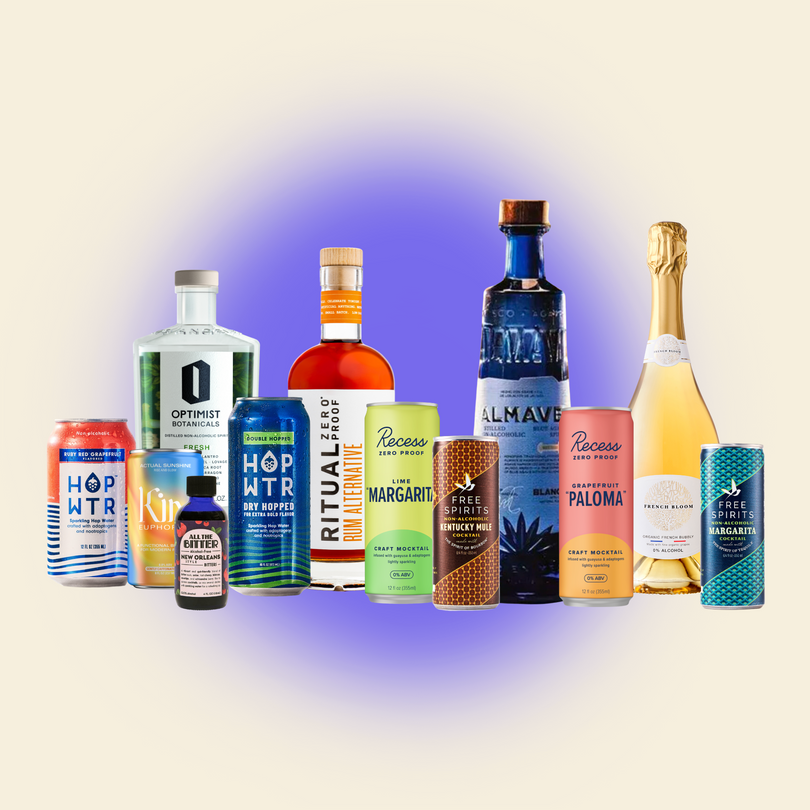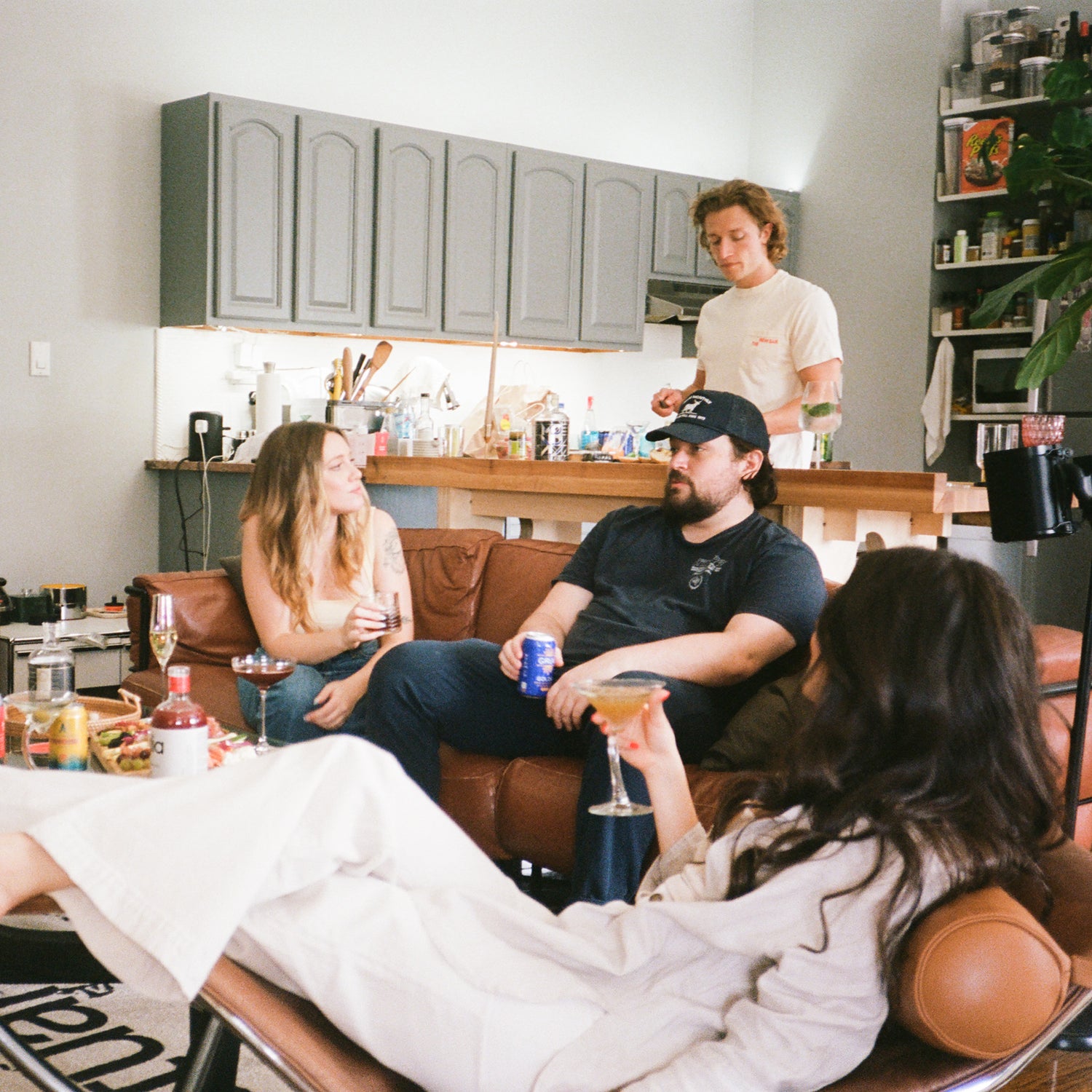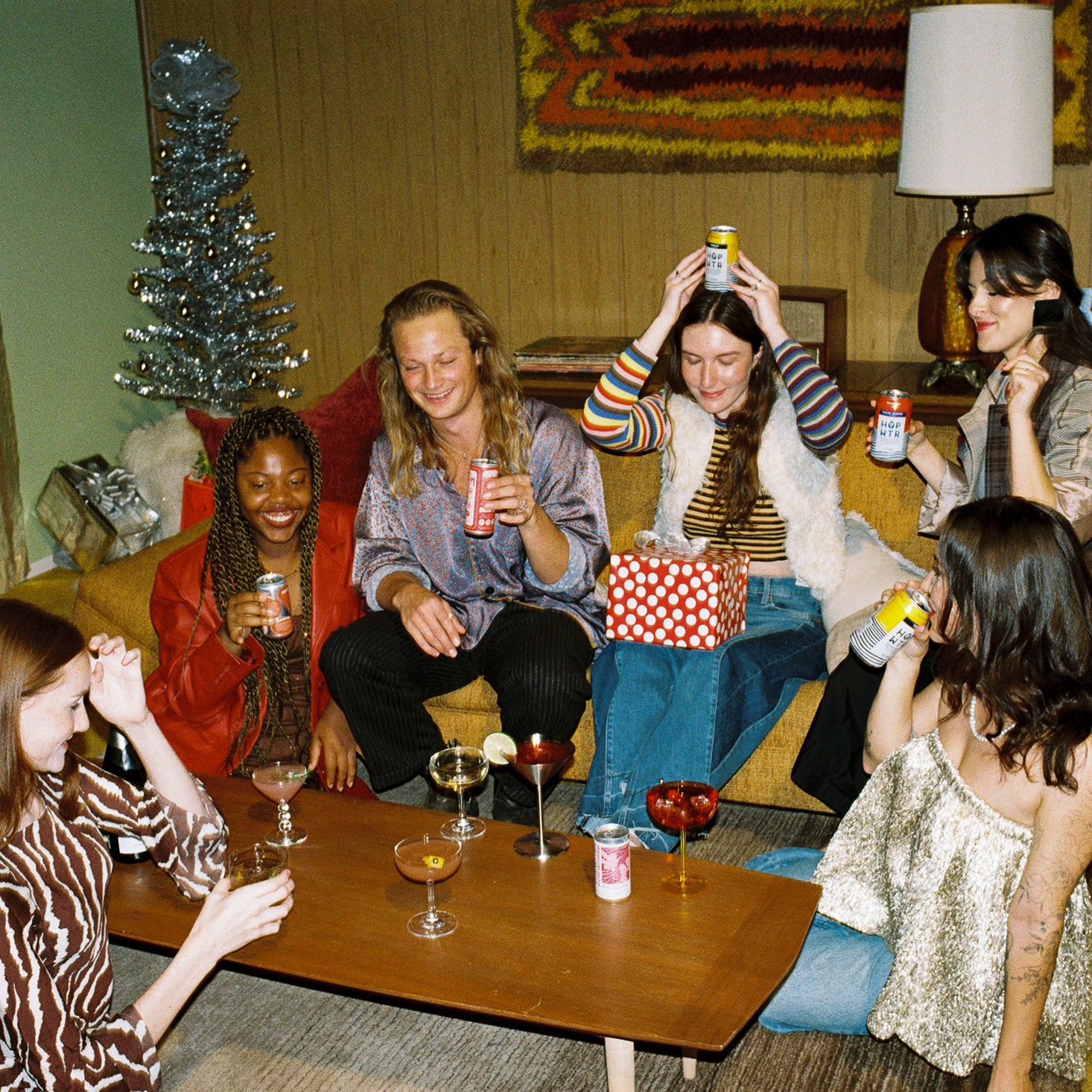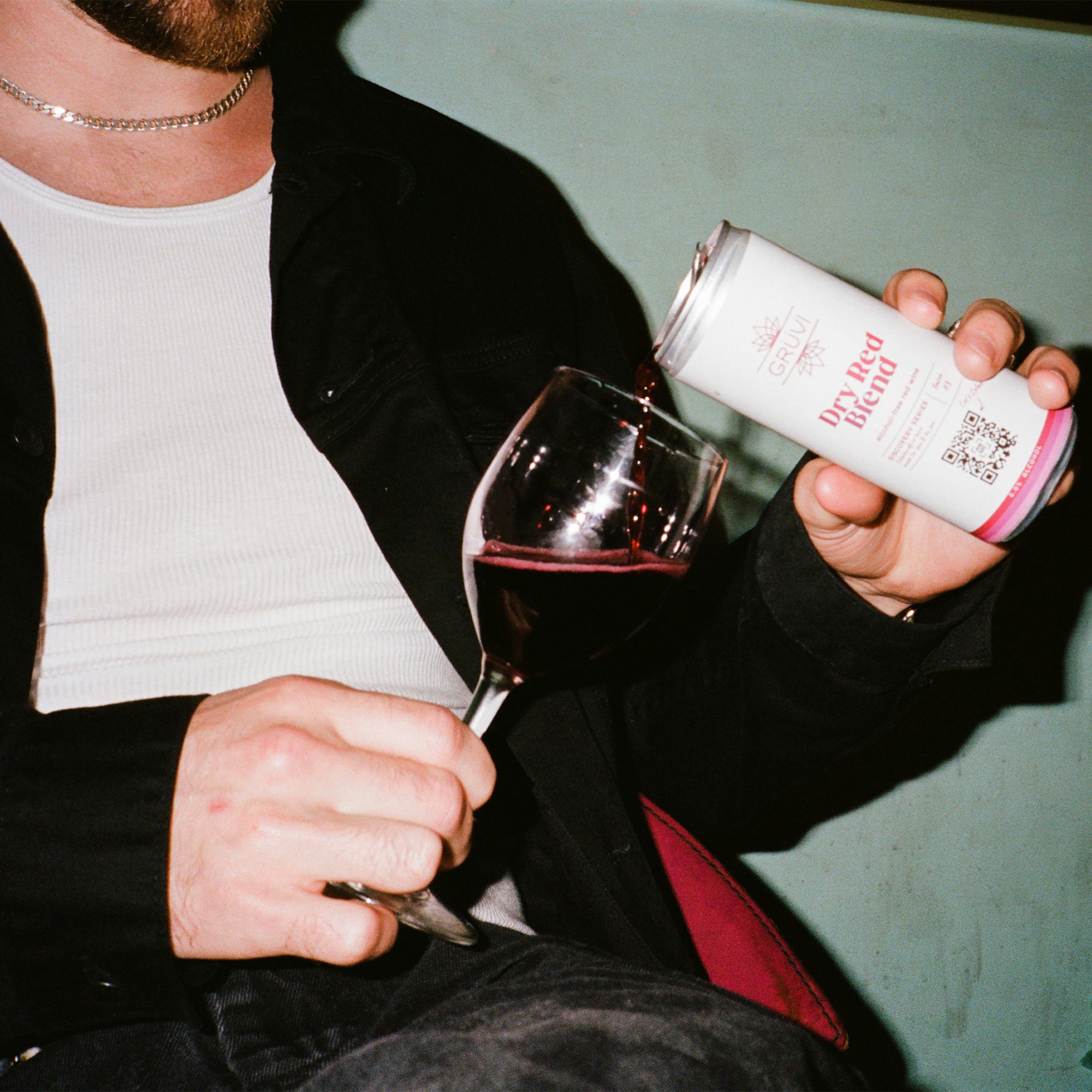We spent years drinking. Sometimes more than we should. One day, we started asking questions: Why do we drink? Why do we always crave a drink at the end of the workday? And...really, why is alcohol intrinsically tied to having fun, connecting with people, and relaxing?
If you've had similar thoughts or asked yourself these types of questions, you might be a sober curious person. Over the last few years, we have been seeing the term "sober curious" more and more. It seems like lots of people, and especially younger people, are exploring new and different approaches to living healthier lives, and not drinking as much (or at all).
So, let's dive into what sober-curious means (and what it doesn't)...
TNB’s Thoughts on the Word “Sober”
Sober is a word that carries a lot of baggage. When you look up the definition "sober," you see descriptions like "serious," "solemn," and "somber."
But ditching alcohol doesn't have to be heavy, serious, or sad. We don't think you have to label yourself one thing or another. We're striving to create a space where anyone interested in drinking less can feel welcome. That's why we don't get hung up on the labels: sober, curious, sober curious, a normal-human-who-thinks-alcohol-is-kind-of-overrated, whatever.
What is a sober curious person?
A sober curious person isn't just that friend who claims they're "never drinking again" when they're hungover. A sober-curious, or "sober sometimes" person really takes time to think about alcohol and their decision to drink or not drink.
That's why sober-curious can be used to describe a wide range of people, like those considering consuming less alcohol, or those already trying it out. We should also point out that while there’s a difference between someone who is "sober curious" and someone who is "sober", they are related, as being “sober curious” is one of the essential first stages of the path to sobriety.
How did the sober curious movement start?
Today, it's considered the standard to mark special occasions, celebrate important events, and even go through bad times with a drink in your hand. So...when did people start questioning the status quo?
Well, "Dry January" walked so sober curiosity could run…so to speak. The very first "Dry January" was created by the Alcohol Concern charity in the U.K. in 2014 and was designed to increase awareness about the health risks of alcohol. The trend caught on, and people began to do "Dry January" on their own, outside of the charity's challenge across the world.
Following the first use of the term "Dry January," Ruby Warrington coined the term "Sober Curious" with her two best-selling books on the topic in 2016. Warrington explained she came up with the term to turn people's common negative concerns about quitting alcohol into positives.
As she described, many people think by giving up alcohol, they're giving up the fun in their lives, and they'll stop getting invites to social events. So, Warrington created a more approachable, judgment-free term that would allow people to start questioning if life could be better without alcohol.
What are the basics of the sober curious movement?
The sober curious movement is for anyone who wants to explore society's connection with alcohol and possibly change their personal relationship with it. The movement essentially invites people to be more aware and mindful of their drinking and to learn how to function in social situations without an alcoholic drink in their hands.
Sober Curious Benefits
In our opinion, there really aren't any negative aspects to being sober-curious. We'd actually argue there are many benefits to reducing alcohol consumption or taking a break from alcohol. For some people, it might lower liver disease risk or blood pressure. Others might experience weight loss, improved sleep, and improved insulin resistance. Outside these physical benefits, being sober curious can also help reduce anxiety and depression, and improve overall mental health.
What to do if you’re sober curious
Embracing sober curiosity is a personal decision and involves self-reflection, so there's no "right" first step. You make the rules. If you're thinking about being more sober-curious, define the term for yourself: what does it mean for you, and how will it help you be better to yourself?
Plan
As a part of this first step, really think about your current relationship with alcohol. For example, if you think you're drinking too much, consider cutting down the frequency. Or, if you're constantly finding yourself in situations where you feel pressured to drink, try looking for new social settings where alcohol doesn't have to be the focus.
Find Support
Doing anything alone can be tricky, especially when it involves a significant lifestyle change. Find people who support you or people living a sober curious lifestyle.
Find Hobbies
Look for hobbies that aren't focused on drinking. A few ideas:- Learn a new skill you've been meaning to learn - pottery? Makeup? Musical instrument? Language?
- Revisit old hobbies or skills
- Plan a trip
- Explore new parts of your city
There are thousands of things to do that don't involve drinking.
Moderation could be an option
Remember that moderation could be the right option for you. You don't need to entirely eliminate alcohol if that's not right for you.
Sober Curious: Takeaways
Just remember, this whole movement is here to serve you. There's no right or wrong way of doing it because it's ultimately about doing what you believe is right for you. If you end up deciding that you want to drink less and have a healthier approach to drinking, well, you've come to the right place. The New Bar is ready to help you be the best version of you, whatever that means to you.

